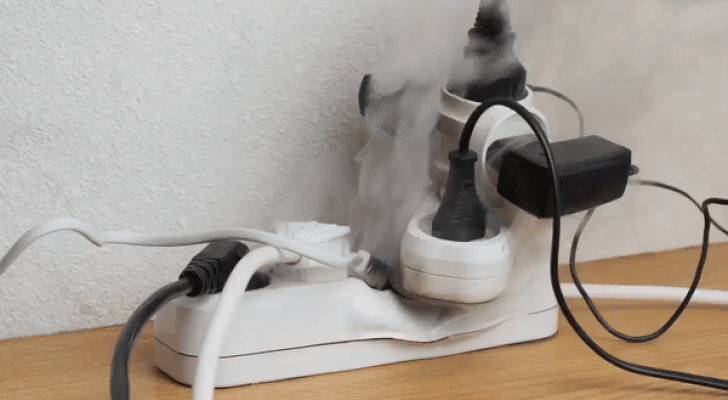It was a great new apartment Morgan thought as she rearranged the living room furniture for the fifth time. She just couldn’t make the layout work because the electric outlets were too far from the lamps.
After a lot of shifting, she realized an extension cord
would do the trick! She carefully concealed the extension cord under her
new area rug and across the room to the outlet; pleased with herself that the
cord would not be a tripping hazard.
As the months passed, Morgan and her roommates continued to
use the extension cord to power the lamps and gradually they added other electrical
items to the power strip. It was so convenient having all the extra
outlets!
What they did not realize was that the extension cord under
the carpet was gradually breaking down from foot traffic and was overheating
due to high levels of power being pulled through the cord.
Morgan and her roommates were unaware of the safety hazards
of extension cords until the day a fire sparked from the cord, turning their
living space into an inferno within minutes.
According to the NFPA, extension cords account for more than
3300 home fires per year.
While you should always inspect your extension cords before
use to check for any damage; here are 12 additional safety tips to help you
protect your home and business:
1. NEVER use an extension cord
or a power strip with portable heaters or fans. The cords can overheat due
to the amount of power being pulled through them, causing a fire.
2. Extension cords are NOT a
permanent fix. They are intended for temporary use.
3. DO NOT plug extension cords into
one another.
4. DO NOT overload extension cords or
power strips.
5. Do not run extension cords through
your walls, ceilings, or floors. The heat cannot escape because the cords
are covered (example: cord under carpet).
6. Never use an extension cord to
power an appliance, such as a refrigerator or freezer. Appliances require
a significant amount of power, and must be plugged in at the wall outlet.
7. Do you check your cords when
you buy them? Buy only cords that are approved by an independent testing
laboratory. Look for UL or SA or ETL.
8. Never cut the grounding pin to
force a 3-prong plug to a 2-prong outlet. This can cause electric shock.
9. Do not nail or staple electrical
cords to walls or baseboards.
10. If you find yourself heavily relying on extension cords,
it is time to call in a professional electrician and have a few new wall
outlets installed.
11. Use extension cords based on their rating,
such as indoor or outdoor.
12. Lastly, but extremely important is to educate
yourself on the amperage limits of the cords you are using. Did you
know that the length of the extension cord will determine the power
capacity? Every extra foot of cord increases the electrical resistance;
which in turn decreases the amount of power the cord can bring to the
device. Always use the shortest extension cord as possible.
From time to time, we all use extension cords – in the
office and at home. Be safe by educating yourself on the proper usages and
capabilities of the extension cords. Do not use the cords for items like
refrigerators or air conditioning units.
